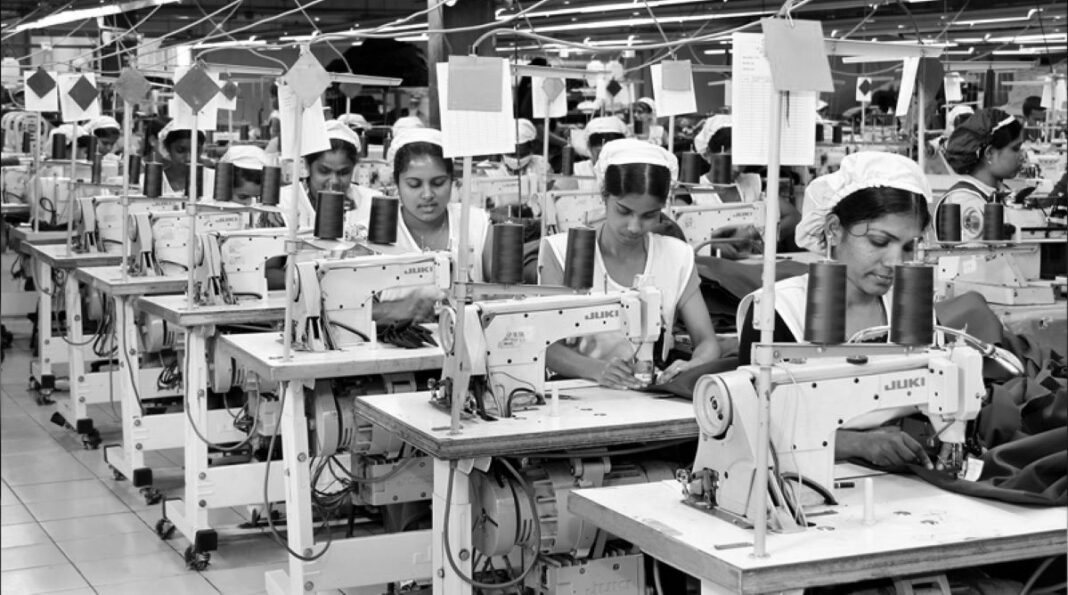Trade unions (TUs) representing the workers in the Free Trade Zones (FTZs) have written to the Labour Minister Nimal Siripala de Silva on Tuesday (24) claiming the Delta (B.1.617.2) Covid-19 variant of Indian origin has ravaged the FTZs and placed the workers in grave danger.
“Many workers are falling victim to the virus with reports showing that even up to 11 workers test positive per day from each company. Although the Government has spoken about the valuable contribution made by the garment industry to ensure that Sri Lanka stays afloat in these times of a foreign reserves crisis, workers at the FTZs are seen as second class citizens,” Dabindu Collective Union General Secretary Chamila Thushari said at a press conference held yesterday (25).
In the letter, the Stand Up Workers Union, the Revolutionary Existence for Human Development (RED) Organisation, the Dabindu (Drops of Sweat) Collective Union, the Shramabhimani Kendraya (Dignity of Labour), and the Textile Garment and Clothing Workers Union have made nine main proposals to the Labour Ministry. These include a 40% increase in the conducting of Polymerase Chain Reaction (PCR) tests and Rapid Antigen Tests (RATs) on workers within the Zones.
The unions pointed out that certain companies do not even provide a surgical mask for workers who are required to report to work despite the rapid spread of the pandemic, whilst most companies also do not adhere to the basic health guidelines such as the sanitisation of working spaces.
The letter to the Labour Ministry also accused companies of requiring first contacts of Covid-19 positive patients to report to work, and a lack of support from Public Health Inspectors (PHIs) in the areas. The unions have further claimed that hospitals surrounding the FTZs are also prejudiced against FTZ workers.
Therefore, the unions have requested the Labour Ministry to make special health regulations for the FTZs, ensure that sanitisation takes place on a regular basis, and also ensure that workers are given proper quarantine facilities.
Furthermore, the unions said that last year, an agreement with the Labour Department had ensured that workers who could not return to work due to the pandemic must receive half their salary or Rs. 14,500 as a minimum wage. However, they have requested the Labour Ministry to reinstate a full salary payment for all workers as last year’s agreement was only a temporary measure to support the industry during an emergency situation.
In October 2020, a Covid-19 cluster was identified in the Katunayake FTZ, causing many workers’ rights groups to raise concerns about how the spread of the pandemic in the FTZ could put over 50,000 workers at risk, noting the crowded living conditions of workers’ hostels and their need to report to work in multiple factories.
